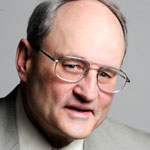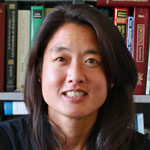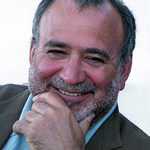Berkeley scholars’ biggest takeaways from first 2020 presidential debate
Pundits agree that acrimony and intimidation cast a pall over the debate stage

September 30, 2020

President Donald Trump, left, and former Vice President Joe Biden at the Sept. 29 presidential debate in Cleveland, Ohio.(AP Photo/Patrick Semansky)
Unpresidential, disgraceful, juvenile and chilling are among the words being used to describe the tone of the Sept. 29 debate between President Donald Trump and Democratic challenger Joe Biden. But what about the substance of what the candidates had to say? That is, when they got a word in edgewise. UC Berkeley scholars across disciplines offer below their biggest takeaways from the 90-minute debate in Cleveland, Ohio. So far, these pundits agree that acrimony vastly eclipsed the substance of what American voters need to know to confidently cast their ballots in the Nov. 3 election.
Jesse Rothstein, professor of economics and of public policy
 “Trump was entirely, completely unpresidential, without the temperament, knowledge or self-regulation to represent this country or to do the job. In refusing to commit to respecting the results, he crossed the red line of democracy, making clear that his ambition is to be an autocrat. I would have liked to hear about Biden’s positions on the issues, but Trump made that impossible through his juvenile behavior. This is not normal, and it may be the lowest point that our country has seen since Fort Sumter. I fear for our country if Trump is allowed to remain in office.”
“Trump was entirely, completely unpresidential, without the temperament, knowledge or self-regulation to represent this country or to do the job. In refusing to commit to respecting the results, he crossed the red line of democracy, making clear that his ambition is to be an autocrat. I would have liked to hear about Biden’s positions on the issues, but Trump made that impossible through his juvenile behavior. This is not normal, and it may be the lowest point that our country has seen since Fort Sumter. I fear for our country if Trump is allowed to remain in office.”
Tina Sacks, assistant professor of social welfare
“Aside from the absurdity of watching a president try to bully his debate opponent while an ineffectual host stood idly by, I was struck by the profound implications the election has for the health of humans and the climate. First, COVID is a zoonotic or animal virus that crossed over into humans, perhaps due to environmental degradation and climate change. We have over 200,000 coronavirus deaths in the U.S., raging wildfires in California and a potentially record-breaking hurricane season in the Gulf Coast. People fleeing fires and hurricanes face serious mental and physical health problems. These challenges highlight the symbiotic relationship between humans and the environment. In spite of this, Trump wants to cut health insurance to over 20 million Americans. Biden emphasized the folly of cutting health care during a pandemic, but we need careful attention to policies that put the final nail in our climate coffin. We ignore these issues at our own peril.”
Steven Weber, political scientist and professor in the School of Information

“The leadership of both parties simply does not care at all about how America is viewed and understood by the rest of the world. Political consultants argue that foreign policy issues don’t move voters or decide elections, but to hear 90 minutes of internal and personal bickering between two men who want to lead the world’s richest and most powerful country, without even a single mention of how what America does impacts the other 7 billion people on earth? It’s stunning, and I think we’ll pay the price for that omission, regardless of who wins in November. To me, it was another powerful signal that the U.S. has essentially given up on global leadership.”
G. Cristina Mora, associate professor of sociology

“Trump said ‘Proud Boys, stand down and stand by.’ For me, that was one of the most chilling moments of last night’s debate. Once again, Trump was given a clear opportunity to denounce white nationalism loudly and without equivocation. Yet, instead of providing a path for unity amidst a moment of racial reckoning, he instead looked into the camera and sounded like an organizational leader giving orders to followers. To me, it reinforced the idea that racial minorities have no protection in the White House, and that America is only for the privileged few. The American people of all shades and backgrounds should hold him accountable, because we deserve so much more.”
Frank Worrell, professor of education and of psychology

“As a psychologist who studies children and adolescents, I am very aware of the importance of role models and the power of observational learning. Individuals in high public office in the U.S. are some of the most visible of role models, with their actions resonating not just across the U.S., but around the globe. Since the last presidential campaign, we have been subjected to invective and disparaging remarks about multiple subgroups in our society, and there has been a concomitant increase in hate speech and discrimination in schools, and in society, more generally. The presidential debate last night hit yet another low point and provided the worst examples of how anyone — far less world leaders — should behave, whether one is conservative or liberal, Republican or Democrat. I am extremely concerned about what young people are learning about how to engage in discourse in a democratic society.”
Henry Brady, dean of the Goldman School of Public Policy

“Everyone encounters hecklers, liars, and racists in their life, but not usually on stage at presidential debates. To see the President of the United States acting like a drunken heckler at a ball game, a small town grifter telling lie after lie, and an equivocating racist was something outside my experience and that of Americans watching Tuesday night’s debate. America deserves better. When Chris Wallace asked President Trump to condemn white supremacists by name, to tell them to ‘stand down,’ the President first criticized the left, then said ‘Give me a name’ as if ‘white supremacists’ was not specific enough. After Joe Biden shouted out ‘Proud Boys,’ the President said ‘Proud Boys. Stand down and stand by’ – thereby providing the group with encouragement to ‘stand by’ that they proudly celebrated on social media. Donald Trump now exculpates himself by saying ‘I don’t know who the Proud Boys are.’ Perhaps, yet he told them to ‘stand by.’ America needs to stand by its democracy right now, and Tuesday night’s debate makes me worry that it is at risk.”
Robin Lakoff, professor emerita of linguistics

“Before the debate, my thought was that, to prevail, Joe Biden had to use mockery to force the notoriously thin-skinned Donald Trump to go crazy and act irrationally. But I was wrong. Biden didn’t have to do anything. Trump went crazy all by himself. My later and more serious thought: The number of commentators, professional and otherwise, who saw Trump’s behavior as a ‘new normal,’ and even as a strength that made him the victor, is really frightening. If these people represent a significant number of Americans, this is a culture in trouble, no matter what the outcome of the election”
Coye Cheshire, social psychologist and professor in the School of Information

“There were so many problems with this fiasco of a ‘debate’ that one could spend thousands of words and not cover them all. But, I will point out two momentous issues of substance: First, when given a clear and wide-open opportunity, Trump refused to denounce white supremacy, and second, he instead used the opportunity to send ominous reassurance to a far-right, neofascist hate group on live television (‘stand back and stand by’). In the hours since the debate, white supremacist groups are openly celebrating the current President of the United States as their ally — including using his own words as a slogan and a call to action.”
Serena Chen, chair and professor of psychology
“What transpired was not surprising, but still excruciating to watch. Hardly anything substantive was conveyed. Instead, what was conveyed to the WORLD was just how far our country has fallen. Facts don’t matter anymore, nor will fact-checking matter either, making me fearful that Trump’s overblown, inaccurate and sloppy comments about mail-in and other forms of voting fraud, etc., will be taken as truths or even partial truths by some people. Once something is out there, it can be hard for even the most well-intentioned, truth-seeking people to separate truth from fiction. I’d like to hope that the moderators of the next two debates are now better prepared to manage Trump so we can have some semblance of an actual debate about actual issues that MATTER to the American people, but I’m not holding my breath.”
John Powell, ’73 alum and retired sergeant, UCPD
 “I received a 5 a.m. wakeup call from my millennial friend in Northern Ireland with whom I’d long ago agreed not to discuss politics. None of the usual hello’s or even just a ‘Hi.’ Instead, he instantly captured my exact takeaway from last night: ‘You must be incredibly embarrassed that those two were the best America can put forward to lead the Free World for the next four years.’ That sentiment was later echoed 100% by the other dozen friends with whom I share coffee every morning.”
“I received a 5 a.m. wakeup call from my millennial friend in Northern Ireland with whom I’d long ago agreed not to discuss politics. None of the usual hello’s or even just a ‘Hi.’ Instead, he instantly captured my exact takeaway from last night: ‘You must be incredibly embarrassed that those two were the best America can put forward to lead the Free World for the next four years.’ That sentiment was later echoed 100% by the other dozen friends with whom I share coffee every morning.”
Kurt Organista, professor of social welfare
 “Trump’s inability to renounce white supremacy, when requested to do so by moderator Chris Wallace, was not only on full display, but so was his dangerous support for groups like the Proud Boys, whom he asked to ‘stand back and stand by,’ rather than ‘stand down,’ as requested by Wallace. I also appreciated Biden calling out the dog whistle when Trump declared that the suburbs would be destroyed if Biden were elected, as well as by low-income housing developments, which Trump is trying to outlaw. UC Berkeley law professor Ian Haney López recommends calling out the dog whistles rather than making accusations of racism, because the whistlers are waiting for that very claim to turn back on the accusers. Finally, the debate was hijacked to perpetuate a vicious voting-by-mail fraud conspiracy theory and to promote voter intimidation at the polls on the part of Trump’s base.”
“Trump’s inability to renounce white supremacy, when requested to do so by moderator Chris Wallace, was not only on full display, but so was his dangerous support for groups like the Proud Boys, whom he asked to ‘stand back and stand by,’ rather than ‘stand down,’ as requested by Wallace. I also appreciated Biden calling out the dog whistle when Trump declared that the suburbs would be destroyed if Biden were elected, as well as by low-income housing developments, which Trump is trying to outlaw. UC Berkeley law professor Ian Haney López recommends calling out the dog whistles rather than making accusations of racism, because the whistlers are waiting for that very claim to turn back on the accusers. Finally, the debate was hijacked to perpetuate a vicious voting-by-mail fraud conspiracy theory and to promote voter intimidation at the polls on the part of Trump’s base.”
Kiran Jain, lecturer in the Goldman School of Public Policy
“For the first time in U.S. history, a sitting president is running not against an opponent, but against democracy itself. As long as voices are able to be heard in a free and fair election, we can continue our imperfect experiment. If we’re given this chance, we must strengthen the norms/values we have so long taken for granted, such as access to truth and transparency.”
Lawrence Rosenthal, chair of the Center for Right-Wing Studies
“Last night, Donald Trump morphed from being a cheerleader for the militia right to assuming a commanding role. For months, he has called armed anti-government and white nationalist militias ‘good people.’ He has spoken positively of ‘the rise of citizen militias around the country.’ On the debate stage with Joe Biden, Trump mostly employed his lifetime of playing pretend tough guy to constantly interrupt and foment belligerent chaos. But at one point, he had a shoutout to the country’s militia right. Moderator Chris Wallace posed the question, ‘Are you willing, tonight, to condemn …militia groups and to say that they need to stand down?’ Trump hedged, then demanded a group be named as an example. Then, as though he were their commander, he issued an order to the Proud Boys: ‘Proud Boys, stand back and stand by!’ And the Proud Boys responded to Commandante Trump. One member posted: ‘Standing down and standing by sir.’ The head of the group posted ‘That’s my president,’ and new shoulder patches were designed with the ‘Stand Back and Stand By’ slogan. Donald Trump has achieved a status unique in American history: He is at once the head of the government and the head of the anti-government.”



